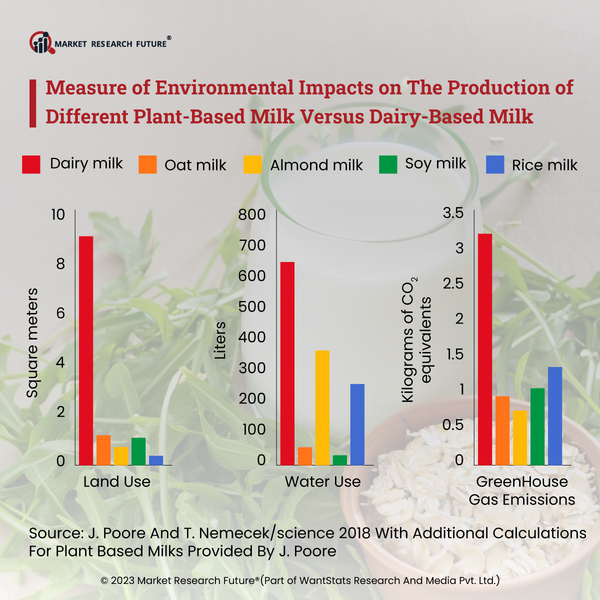Plant Milk is Environmentally More Sustainable in 2023
Sustainable development is growing daily in every sector of the economy. It has not been limited to the environmental aspects only, instead, it influences each market segment and eventually contributes towards protecting the environment only. There is a significant rise in consumer preferences shifting towards more sustainable and healthy food choices in 2023.
Recent studies have proven that plant-based milk will be more environmentally sustainable in 2023. Various options come with plant-based milk, such as soy, oat, coconut, and others. These plant milks are gaining popularity due to their many health benefits. These alternatives have also helped people who follow a vegan diet and are lactose intolerant. According to the survey, cow milk is the least sustainable due to carbon dioxide emissions and water consumption during production. Based on the data from research, cow's milk produces 628 liters of water, and 3.2 kgs of carbon dioxide is generated. In the case of plant milk, water consumption is much lower than cow's milk. The study shows that almond milk uses only 60 percent of the water in cow's milk, whereas almond milk is the highest polluter among all plant-based milk. Rice milk does not use 40 percent of the water required for cow milk production.
The impact of dairy farming on the environment has led consumers and producers to adopt sustainable ways of producing milk. It has led to a surge in the consumption of plant milk; almond and oat milk are the most consumed plant milk. According to the data, 63 percent of plant milk consumers prefer almond milk, and 46 percent choose oat milk. Plant milk sales grew by 9 percent as compared to regular cow milk in 2022. The availability of various options in plant milk and creative marketing strategies are accelerating factors in the growth of plant milk sales in the market. Plant milk products reached USD 38.90 billion in 2023 and are expected to reach USD 123.20 billion by 2029 with a growth rate of 15.5 percent.






